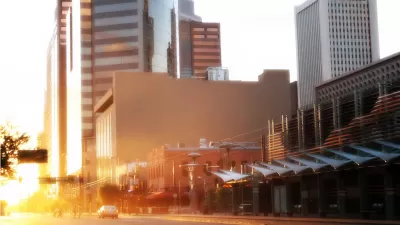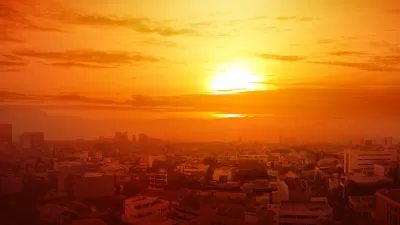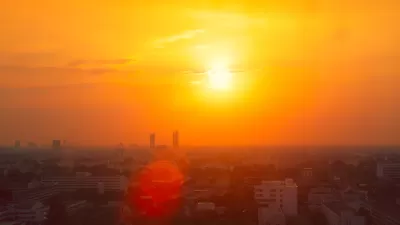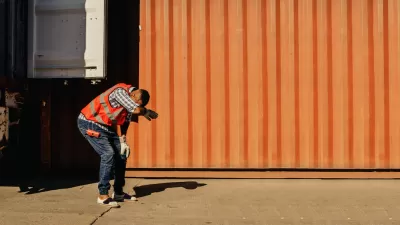As more extreme temperatures lead to an alarming rise in heat-related deaths across the country, Phoenix is taking action with the nation's first public heat response office.

As one of the nation's fastest-warming cities, Phoenix has seen a sharp rise in heat-related deaths as extreme temperatures become more commonplace. To address this growing public health crisis, the city has created the first publicly funded Office of Heat Response and Mitigation to tackle the problem of extreme heat and prevent heat deaths, which reached almost 500 in 2020. Jessica Kutz spoke with David Hondula, the director of the new office, to get a sense of how the city plans to develop a more comprehensive heat mitigation policy.
Hondula says the department will focus on coordinating a variety of short- and long-term heat mitigation strategies with other city departments and prioritizing cooling methods that meet local needs, such as increasing the city's tree canopy, installing cool pavement, and opening cooling centers for residents with no access to safe spaces in the extreme heat.
Hondula acknowledged the unequal heat burden faced by low-income communities, saying that his office will "steer the city’s investments in mitigation and response to the communities where there is the greatest need."
Earlier this year, Phoenix pledged to commit to 'tree equity' by 2030 by planting more trees in underserved neighborhoods and closing the green gap between high-income and low-income communities, where lack of shade exacerbates the effects of extreme heat.
FULL STORY: How to cool one of the fastest-warming cities in the West

Study: Maui’s Plan to Convert Vacation Rentals to Long-Term Housing Could Cause Nearly $1 Billion Economic Loss
The plan would reduce visitor accommodation by 25,% resulting in 1,900 jobs lost.

North Texas Transit Leaders Tout Benefits of TOD for Growing Region
At a summit focused on transit-oriented development, policymakers discussed how North Texas’ expanded light rail system can serve as a tool for economic growth.

Using Old Oil and Gas Wells for Green Energy Storage
Penn State researchers have found that repurposing abandoned oil and gas wells for geothermal-assisted compressed-air energy storage can boost efficiency, reduce environmental risks, and support clean energy and job transitions.

Private Donations Propel Early Restoration of Palisades Playground
Los Angeles has secured over $1.3 million in private funding to restore the Pacific Palisades playground months ahead of schedule, creating a modern, accessible space that supports community healing after recent wildfires.

From Blight to Benefit: Early Results From California’s Equitable Cleanup Program
The Equitable Community Revitalization Grant (ECRG) program is reshaping brownfield redevelopment by prioritizing projects in low-income and environmental justice communities, emphasizing equity, transparency, and community benefits.

Planting Relief: Tackling Las Vegas Heat One Tree at a Time
Nevada Plants, a Las Vegas-based nonprofit, is combating the city’s extreme urban heat by giving away trees to residents in underserved neighborhoods, promoting shade, sustainability, and community health.
Urban Design for Planners 1: Software Tools
This six-course series explores essential urban design concepts using open source software and equips planners with the tools they need to participate fully in the urban design process.
Planning for Universal Design
Learn the tools for implementing Universal Design in planning regulations.
Ascent Environmental
Borough of Carlisle
Institute for Housing and Urban Development Studies (IHS)
City of Grandview
Harvard GSD Executive Education
Toledo-Lucas County Plan Commissions
Salt Lake City
NYU Wagner Graduate School of Public Service





























